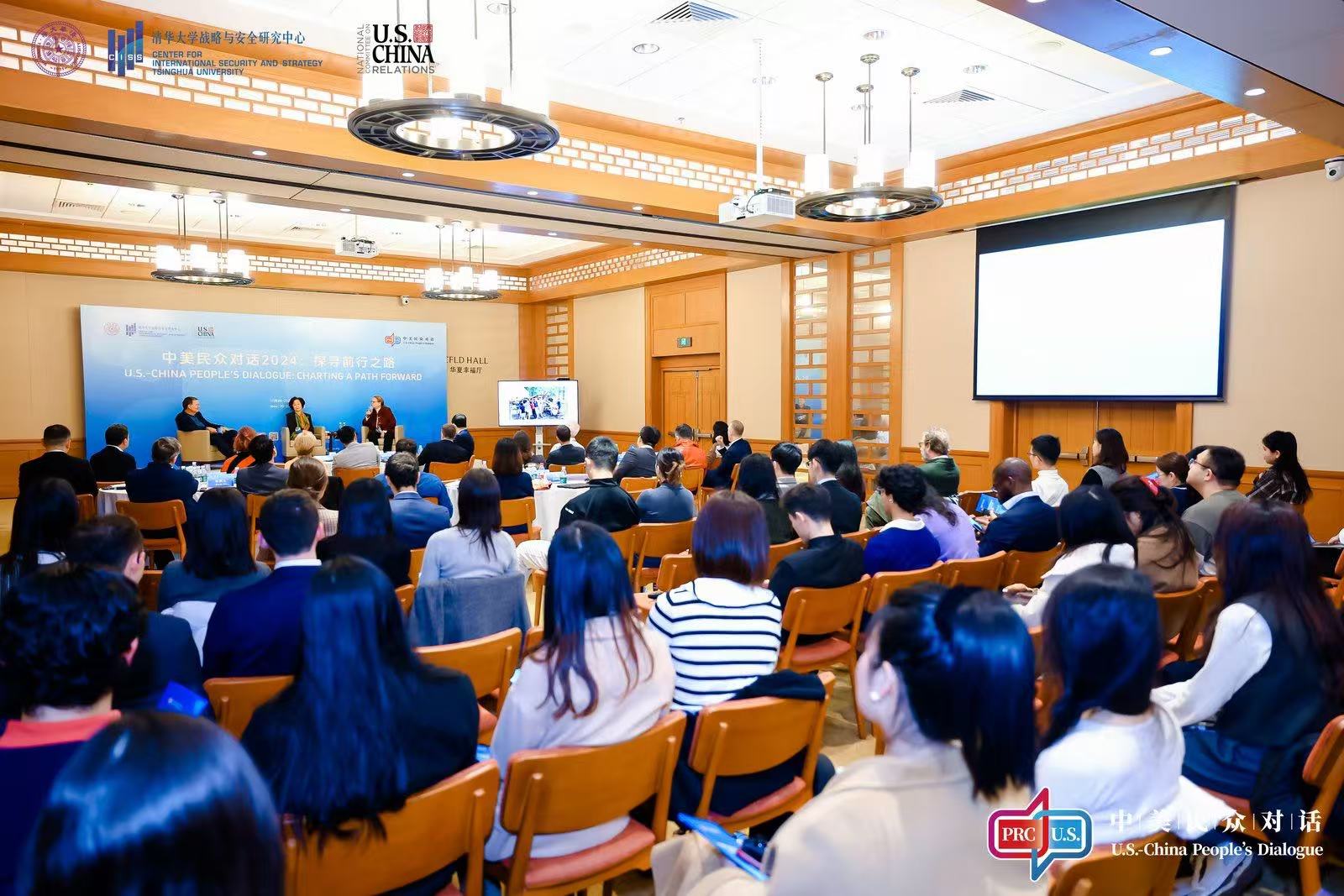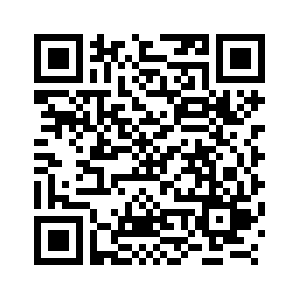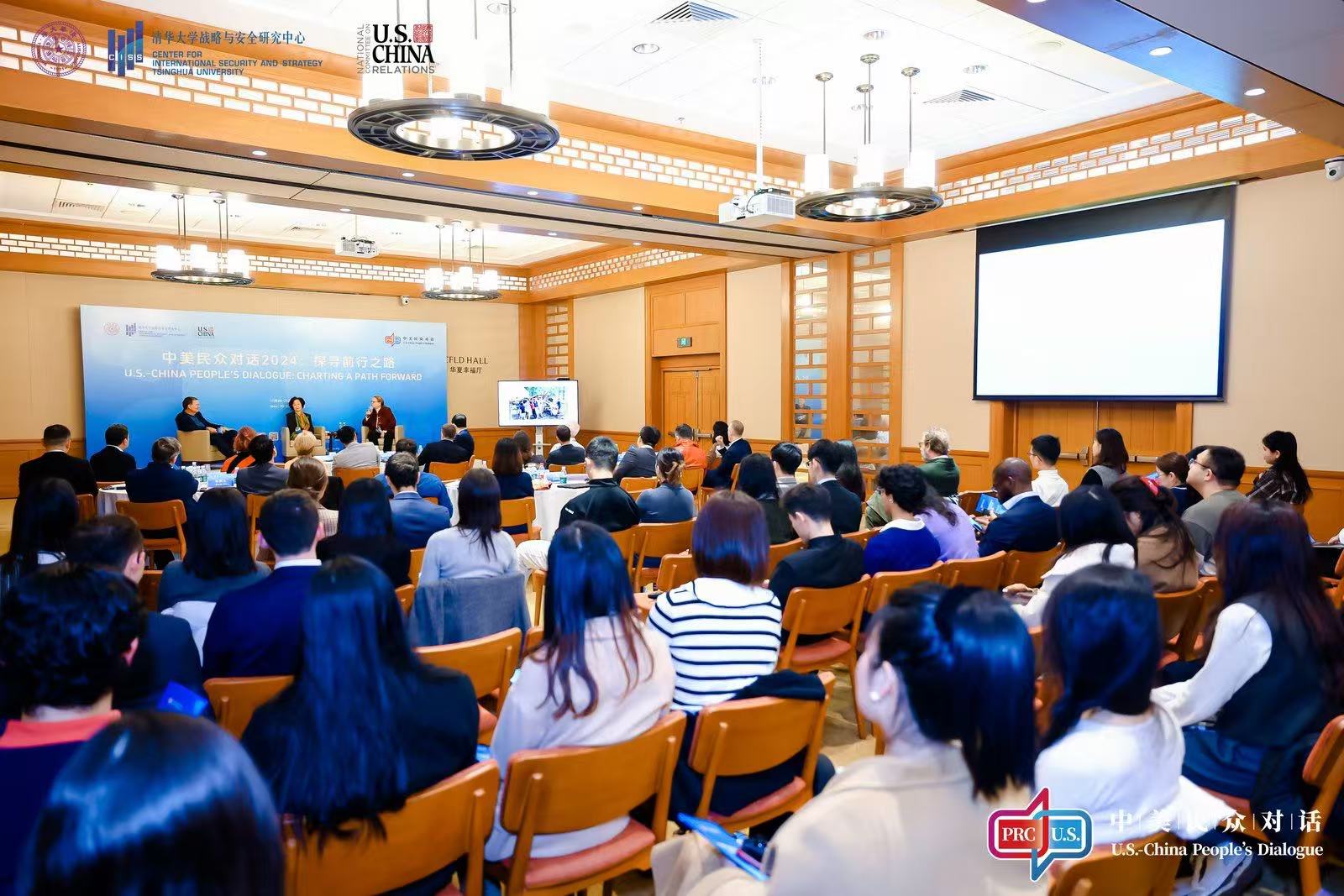“U.S.-China People’s Dialogue: Charting a Path Forward,” was held in Beijing on Nov. 20-23, setting the ground-work for Chinese and American thought leaders, business people among others to face-to-face discuss the challenges and proposals for solutions when addressing China-U.S. bilateral relations.

Guests speaking at the U.S.-China People’s Dialogue. (Photo Courtesy: Center for International Security and Strategy of Tsinghua University)
Co-organized by National Committee on U.S.-China Relations and Center for International Security and Strategy of Tsinghua University, the dialogue addressed several key topics, including tourism, artificial intelligence (AI), expats living in China, food systems, cross-border business & investments, sports, higher education, arts, transnational marriage, entrepreneurship, China’s rural development, as well as China-U.S. ties.
Restoring friendships through communications
Yet he advised that China and U.S. should keep promoting people-to-people exchanges and explained how “Ping-Pong Diplomacy” did spark a path forward for China and the U.S. to re-start direct communications. He was taking reference of historic events in the early 1970s when the Chinese and American ping pong players had competed against each other, which also created a huge international media sensation.
A few experts on U.S.-China relations cited Ping-Pong Diplomacy as the pivotal moment when Americans started to see the China in a more positive light. It inspired the then U.S. President Richard Nixon to approach the Chinese government, who later paid a historic visit to China in 1972.
Bridging cultures by culinary delights
He spoke fondly of his former days as a chef of the US envoys serving at the U.S. Embassy and described moments when tense meetings were held, but when he cooked and served meals for them, the diplomats started to relax and when eating they could speak on friendlier levels.
Additionally, Rosenblum demonstrated deep concerns over food systems and its impact on healthy living, along with matters of malnutrition and cross-cultural concerns. “We should look at historical foods as regimes of value and an objective reality,” he said during an interview with Xinhuanet.
Emphasizing how food systems have an ethical angle, Rosenblum noted that the mass productions of food have not delivered the best results for resolving problems of mass malnutrition in the developing nations.
Scoring points for mutual understanding
Even though China and U.S. relations had experienced difficulties in recent years, there are still symbols of hope for the Chinese and Americans to come closer together.
Sports culture plays a prominent role in American society. Americans love watching and playing sports, such as American football, baseball, hockey, tennis, golf, race car driving and especially basketball.
Retired NBA All-Star player Yao Ming, spoke at the dialogue and told humorous tales about the difference between Chinese and American basketball cultures.
He spoke about how Americans love to compete and are passionate about sports. They take winning very seriously and sometimes that can be misunderstood by the Chinese, who are taught and nurtured to show humility and to embrace concepts of social harmony.
Yao is very tall and dunking comes easily to him, but his Chinese coaches didn’t want him to look like he was humiliating his rival team. However, Americans don’t hold similar sentiments. Yao said when he arrived in Houston to play for Rockets, his coaches kept saying, “crush your opponent and dunk the ball.”
At first, Yao was shocked and felt reluctant to play so ferociously. “Why is my coach telling me to crush my opponent,” Yao said. “I don’t want to do that. I just want to play.”
And that’s important to note. Sometimes, there are huge cultural misunderstandings between China and the U.S. But the Chinese and Americans can become friends as they hold similar cultural traits. Both the Chinese and Americans love winning, they are ambitious and optimists.
Accordingly, when the Chinese and Americans can have more opportunities to meet each other, we can see China-U.S. relations enjoy brighter days ahead.




